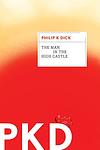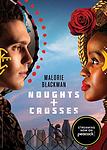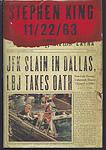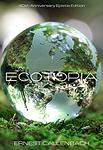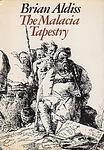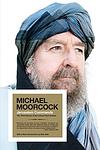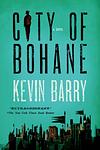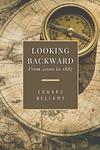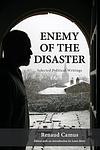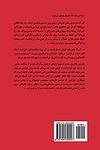The Greatest "Alternate History" Books of All Time
Click to learn how this list is calculated.
This list represents a comprehensive and trusted collection of the greatest books. Developed through a specialized algorithm, it brings together 284 'best of' book lists to form a definitive guide to the world's most acclaimed books. For those interested in how these books are chosen, additional details can be found on the rankings page.
Genres
Alternate History is a genre of fiction that explores the possibilities of what could have happened if certain historical events had taken a different course. It involves imagining a world where key moments in history have been altered, resulting in a different outcome. This genre often blends elements of science fiction, fantasy, and historical fiction, and can provide thought-provoking insights into the impact of historical events on our present-day world.
Countries
Date Range
Reading Statistics
Click the button below to see how many of these books you've read!
Download
If you're interested in downloading this list as a CSV file for use in a spreadsheet application, you can easily do so by clicking the button below. Please note that to ensure a manageable file size and faster download, the CSV will include details for only the first 500 books.
Download-
1. Watchmen by Alan Moore
Set in an alternate history where superheroes emerged in the 1940s and 1980s, the story follows a group of retired superheroes who are brought out of retirement after the murder of one of their own. As they investigate, they uncover a plot that could change the course of history and the balance of world power. The book explores complex themes such as the morality of power, the definition of heroism, and the value of human life.
-
2. The Man in the High Castle by Philip K. Dick
Set in an alternate history where the Axis powers won World War II, this novel explores life in a world where the United States is divided into three parts: the Pacific States of America, controlled by Japan; the Rocky Mountain States, a neutral buffer zone; and the United States of America, controlled by Nazi Germany. The story follows several characters, including a jewelry designer, a trade minister, and a German secret agent, as they navigate this dystopian reality. The narrative is further complicated by the existence of a banned novel that depicts an alternate reality where the Allies won the war, causing characters to question their understanding of reality.
-
3. Noughts and Crosses by Malorie Blackman
"Noughts and Crosses" is a thought-provoking novel set in a dystopian society where racial segregation is reversed. It follows the lives of two main characters: a girl from the ruling class (Crosses) and a boy from the underclass (Noughts). Despite their different backgrounds, they form a deep bond that eventually turns into a romantic relationship, challenging the societal norms and prejudices. The novel explores themes of love, racism, and power, offering a poignant commentary on the repercussions of societal divisions.
-
4. The Plot Against America by Philip Roth
This novel presents an alternate history where aviator-hero and rabid isolationist Charles Lindbergh is elected President in 1940, leading the United States towards fascism and anti-Semitism. The story is narrated through the perspective of a working-class Jewish family in Newark, New Jersey, experiencing the political shift and its terrifying consequences. The narrative explores themes of prejudice, fear, patriotism, and family bonds under the shadow of a fascist regime.
-
5. A Connecticut Yankee In King Arthur's Court by Mark Twain
The novel follows the fantastical journey of a 19th-century American engineer who, after a blow to the head, finds himself transported back in time to the medieval kingdom of King Arthur. Using his modern knowledge and ingenuity, the protagonist attempts to modernize the past society, introducing industrial technology and democratic ideas. His efforts to revolutionize the Arthurian world are met with both humor and a critical examination of the social and political issues of both the past and his contemporary society, ultimately leading to a complex interplay between progress and tradition.
-
6. The Underground Railroad by Colson Whitehead
This novel follows the journey of Cora, a young slave on a cotton plantation in Georgia, who escapes and embarks on a journey towards freedom via the Underground Railroad. The book presents a literal version of the historical Underground Railroad, portraying it as a physical network of tunnels and tracks beneath the Southern soil. As Cora travels from state to state, she encounters different worlds and harsh realities, each one illuminating the various forms of oppression Black people faced in America. The narrative is a brutal exploration of America's history of slavery and racism, and a testament to the unyielding spirit of those who fought against it.
-
7. The Anubis Gates by Tim Powers
"The Anubis Gates" is a thrilling time-travel adventure set in 19th-century London. When a wealthy industrialist organizes a trip back in time to witness a famous poet's lecture, the journey takes an unexpected turn. The protagonist, Brendan Doyle, finds himself trapped in the past, caught in a web of magic, Egyptian mythology, and a secret society. As he navigates through dangerous encounters and encounters historical figures, Doyle must unravel the mysteries of time travel and find a way back to his own time before it's too late.
-
8. Fatherland by Robert Harris
Set in an alternate history where Nazi Germany won World War II, the novel follows a German detective who uncovers a vast conspiracy while investigating a murder. As he delves deeper into the case, he realizes that the government is hiding a monumental secret that could shake the very foundations of the Reich. His pursuit of the truth leads him into a dangerous game of cat and mouse with the state's oppressive security forces, challenging his loyalty to the regime and forcing him to confront the moral complexities of a world dominated by fascism.
-
9. 11 22 63 by Stephen King
"11/22/63" is a science fiction novel by Stephen King that follows the story of Jake Epping, a high school English teacher who discovers a portal that leads to 1958. After being convinced by his friend Al to use the portal to prevent the assassination of John F. Kennedy, Jake embarks on a journey through time to change the course of history. Along the way, he falls in love with a woman named Sadie and faces various obstacles that threaten to alter the timeline he is trying to change. The book explores themes of love, loss, and the consequences of trying to change the past.
-
10. The History of the Siege of Lisbon by José Saramago
This narrative revolves around a proofreader named Raimundo Silva, who, while working on a historical text about the Siege of Lisbon, decides to alter history by adding a single word to the text, turning the factual account into a fictional one. This act of rebellion leads him into a relationship with his boss, Maria Sara, and together they explore the consequences of questioning historical facts and narratives. The story also delves into the power of language and storytelling, and the blurred lines between history and fiction.
-
11. The Yiddish Policemen's Union by Michael Chabon
In an alternate reality where Jewish refugees found sanctuary in Alaska during World War II, the book follows a homicide detective in the Yiddish-speaking metropolis of Sitka as he investigates the murder of a former chess prodigy. The detective's quest takes him from the city's seedy underbelly to the highest echelons of power, and he uncovers a vast conspiracy that threatens the very existence of the Jewish homeland in Alaska. The novel is a blend of detective fiction, alternate history, and Jewish humor.
-
12. Seven Days In New Crete by Robert Graves
In this speculative fiction novel, a poet from the mid-20th century is transported into a future utopian society on the island of Crete, which has been renamed New Crete. This society has rejected industrialization and lives in harmony with nature, guided by matriarchal principles and the worship of a goddess. The poet, initially enchanted by the peaceful and artistic way of life, soon discovers underlying tensions and contradictions, particularly when he becomes involved in the island's rituals and politics. As a festival that reenacts a mythic battle between the gods approaches, the poet's presence and actions inadvertently set off a chain of events that challenge the society's values and stability, leading to a dramatic conclusion that questions the viability of utopia.
-
13. Ecotopia by Ernest Callenbach
The book is a utopian novel that takes place in a fictional country located in the western part of the United States, which seceded from the rest of the country due to differing ecological policies. The society in this country is highly sustainable, with its citizens living in harmony with nature, practicing recycling and renewable energy use, and promoting gender equality. The story is told through the eyes of a skeptical American reporter who gradually comes to appreciate this alternative way of life.
-
14. The Malacia Tapestry by Brian W. Aldiss
Set in an alternate Renaissance-like city where evolution is mutable and exotic creatures roam, the novel follows the life of an actor who navigates the complex social and political tapestry of Malacia. The city is a place of both beauty and decadence, where ancient traditions clash with new ideas, and the protagonist must contend with love affairs, rivalries, and the whims of a capricious prince. As he strives for success on and off the stage, he becomes entangled in the deeper machinations of a society resistant to change, exploring themes of progress, control, and the role of art in reflecting and challenging the status quo.
-
15. Jerusalem Commands by Michael Moorcock
In "Jerusalem Commands," readers are transported through a fantastical and surreal narrative that follows the adventures of Colonel Pyat, an unreliable and often delusional protagonist. Set against the backdrop of the early 20th century, the novel weaves through the chaos of a world between wars, touching upon themes of imperialism, addiction, and the quest for identity. Pyat's journey is marked by a series of escapades and misadventures that take him from Europe to Africa, exposing the dark underbelly of colonialism and the human psyche. The book is the third in a series, characterized by its rich historical tapestry and a protagonist who is as charismatic as he is morally ambiguous, leaving readers to question the very nature of truth and history.
-
16. City of Bohane by Kevin Barry
Set in the year 2053, the book is a dystopian tale about the city of Bohane, a place filled with vice, violence, and tribal warfare. The city is controlled by a gangster named Logan Hartnett, who is challenged by his estranged wife Macu and her lover, a rival gang leader. The narrative is filled with colorful characters, rich language, and a unique blend of futuristic and archaic elements, creating a vivid, darkly comic vision of a future Ireland.
-
17. Against the Day by Thomas Pynchon
The novel is a sprawling epic that spans the period from the 1893 World's Fair to the years following World War I. It follows the stories of several characters including the anarchist Traverse family, a group of balloonists, a detective, and a mathematician. The book explores themes of anarchism, capitalism, and technology, and incorporates elements of science fiction, adventure, and historical fiction. It is noted for its complex structure and dense, multifaceted narrative.
-
18. The Time Ships by Stephen Baxter
This novel is a sequel to H.G. Wells' classic "The Time Machine," expanding on the original story with a grand exploration of time and space. The protagonist, the Time Traveler, embarks on another journey, only to find his actions have altered the future. He navigates through a series of alternate realities and timelines, including a world dominated by Morlocks, a post-human solar system, and a universe at the brink of its end. Throughout his adventures, he confronts philosophical and moral dilemmas, including the nature of humanity, the concept of time, and the impact of his own interventions. This ambitious narrative combines hard science fiction with deep philosophical questions, offering a complex and thought-provoking continuation of the original tale.
-
19. Looking Backward, 2000 1887 by Edward Bellamy
This novel is a utopian science fiction story that begins in late 19th-century America, where the protagonist falls into a deep sleep only to awaken in the year 2000. He finds himself in a radically transformed society where social and economic injustices have been rectified through the establishment of a harmonious, cooperative world. The narrative explores the contrasts between the world of 1887, marked by inequality and inefficiency, and the year 2000, where a socialist paradise has been achieved, highlighting the author's critique of the social and economic issues of his time and his vision for a better future through reform and moral progress.
-
20. Selected Writings by Salvatore Quasimodo
"Selected Writings" is a compilation of works by a Nobel Prize-winning poet, which showcases the breadth and depth of his literary contributions. The collection spans various phases of his career, offering readers a glimpse into his evolution as a writer. Known for his lyrical and evocative style, the author's poetry often reflects on themes of war, human suffering, and the search for meaning in a fragmented world. His work is deeply rooted in the classical tradition, yet it also incorporates modernist elements, illustrating a unique fusion of past and present. This anthology not only highlights the poet's technical mastery and emotional resonance but also his engagement with the cultural and historical upheavals of his time.
-
21. The Years of Rice and Salt by Kim Stanley Robinson
The book is an alternate history novel that explores a world in which the Black Death plague of the 14th century was far more lethal to Europeans, nearly wiping them out. As a result, world history is dramatically reshaped: Islamic and Buddhist societies emerge as the dominant global powers, leading to vastly different technological, cultural, and social developments. The narrative spans several centuries, following a group of characters who are reincarnated into various lives and roles, allowing the reader to experience the evolution of this alternate world through their interconnected stories. The novel delves into themes of history, religion, technology, and human nature, all while imagining a world both familiar and strange, shaped by different forces and ideas than those that have shaped our own history.
-
22. Tours of the Black Clock by Steve Erickson
"Tours of the Black Clock" is a complex and surreal novel that blends historical events and fantasy. The narrative follows the life of Banning Jainlight, an infamous erotic novelist hired by Adolf Hitler to write his sexual biography, as well as the lives of several other characters across different time periods and locations. The story explores themes of time, identity, and the power of storytelling, weaving together the disparate threads of the characters' lives in unexpected ways.
-
23. The Difference Engine by William Gibson, Bruce Sterling
"The Difference Engine" is an alternative history novel set in Victorian England, where Charles Babbage successfully builds his Analytical Engine, a revolutionary steam-powered computer. The story follows two protagonists, one a paleontologist and the other a detective, as they become embroiled in a conspiracy involving political intrigue, technological advancements, and a dangerous secret society. With a blend of historical accuracy and speculative fiction, the book explores themes of power, progress, and the consequences of technological innovation.
-
24. La Part De L'autre by Éric-Emmanuel Schmitt
The book presents an intriguing alternate history, exploring two parallel narratives: one in which Adolf Hitler is accepted into the Academy of Fine Arts in Vienna, leading to a life as a modest artist, and another where he is rejected, setting him on the path to becoming the Führer of Nazi Germany. This thought-provoking exploration examines the impact of seemingly small events on the course of history and the nature of evil, as it juxtaposes the life Hitler could have led with the infamous one he did, raising questions about destiny, choice, and the inherent potential for good and evil within us all.
-
25. American War by Omar El Akkad
Set in the late 21st century during the second American Civil War, this novel follows the life of Sarat Chestnut, a young girl from Louisiana. As the South refuses to give up fossil fuels, the country plunges into a violent and chaotic war, leading Sarat and her family to live in a refugee camp. Sarat's experiences of loss and hardship fuel her transformation into a hardened instrument of war. The novel explores themes of revenge, the impact of war on individuals, and the cyclical nature of violence.
Reading Statistics
Click the button below to see how many of these books you've read!
Download
If you're interested in downloading this list as a CSV file for use in a spreadsheet application, you can easily do so by clicking the button below. Please note that to ensure a manageable file size and faster download, the CSV will include details for only the first 500 books.
Download
